When I travel I often like to improvise and see where adventure takes me. But, like almost everyone, I also like to do my research before I go.
There are many ways to research a trip, from reading old-fashioned travel guides (like Lonely Planet or Rough Guide) to going on a Pinterest binge. Here, I want to tell you about a few methods that I’ve used to go deeper in my research.
The following tips I think work especially well for finding things that are a bit more off the beaten path.
Search on Google more creatively
When people look for travel information online, 9 times out of 10 I see the same things getting typed into Google. It’s almost always some variation of ‘best things to do in [place]’ or ‘top places to visit in [country]’. Heck, I still do this a lot too!
There’s just one problem with this.
Most of the top search results for these queries are now dominated by sites that only give you the most basic listicles.
TripAdvisor, for example, just lists popular activities without any context. TheCrazyTourist.com, which is seemingly always one of the first results, only has general info about travel locations taken from other sources.
The big content mills just don’t do it for me usually. I really want those legit on-the-ground reports!

That’s why one of my favorite search queries for trip research is ‘[thing I want to know about] + travel blog’. This usually gets me to more useful content much faster.
Another good one is ‘[thing I want to know about] + backpacking’. Backpackers often spend longer in places, so this search query often brings you to more complete information.
Trying different search terms can really do wonders. Typing ‘best’ or ‘must-see’ works in a lot of cases, but sometimes that just gives you a ton of cookie-cutter posts. A search for ‘alternative’, ‘off the beaten track’, ‘less known’, ‘local’, or whatever else you can think of could work a little better. Search statistics show that very few people try out such different search terms, but I think it can help you a lot in your trip research.
Another thing you can try is this:
In your Google search results click Tools and then change the date from Any time to Past year. This will get you more recent posts with interesting info but which might not be able to butt heads with the likes of TripAdvisor.
Ask in Facebook groups
I think Facebook groups are a hugely underrated source of travel information. At least, if you find the right ones.
I like them because you can get lots of personal tips quickly.
As much as I enjoy reading travel blogs, it can sometimes be difficult to know what to start reading about. But go into a FB group and you’re sure to get lots of salty opinions and local tips.
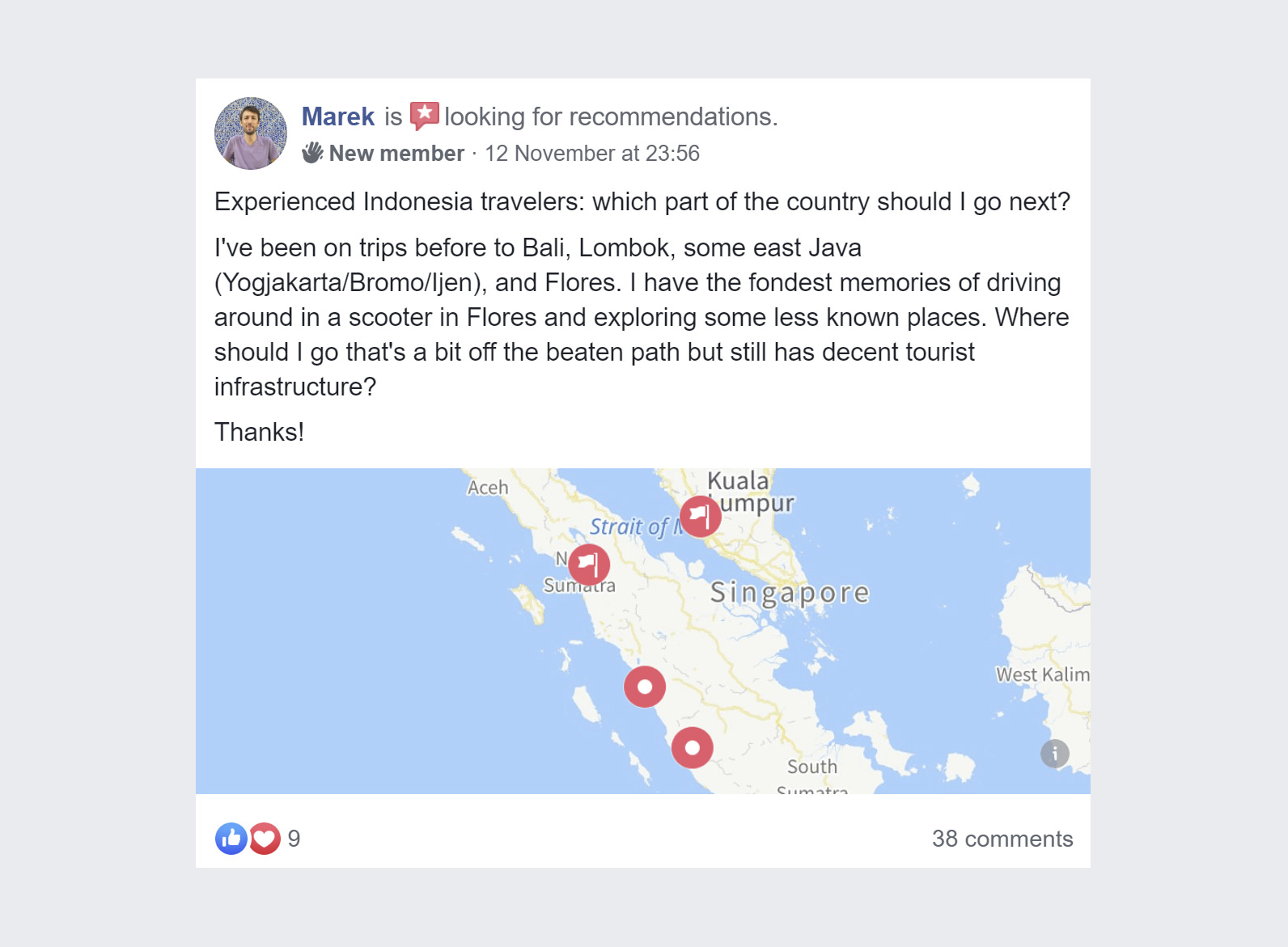
I was reminded of this recently when researching a potential trip to Indonesia. I’ve already been to many parts of Indonesia and I struggled to find some angles for my research. Luckily, a quick question on the “Backpackers Indonesia” Facebook group got me loads of passionate tips, invitations to villages, contacts with local guides and motorbike rentals, and so on. I came away with a ton of ideas for things to find out more about.
Try searching for your travel destination on Facebook together with the word backpacking, expat, or digital nomad.
Besides Facebook groups, another great place to look is Reddit. Subreddits dedicated to specific places have loads of locals that can give you specific tips.
Search in the local language
Have you tried searching in the local language of where you’re going?
It isn’t a surefire way, but sometimes it lets you dig up a real gem.
I was recently looking for places to explore in Andalusia in Spain, but wanted to find stuff beyond the usual highlights that are always mentioned. Many of the English-language blogs recommended the famous Caminito del Rey hike (which requires booking long in advance), but it wasn’t until I search Spanish blogs that I learned of the fascinating landscapes of the Torcal de Antequera nature reserve nearby.
Try going to the local version of Google (in this case, google.es) and searching there. Maybe you’ll get lucky and find something cool!
If you use Chrome, you can right-click on a page and select Translate to English.
Use MAPS.me
Always be sure to install MAPS.me on your phone before you go on your next trip! I use this tool mainly during my travels to research what’s around me, but sometimes in my pre-trip research as well.
The Maps.me app is very different from apps like Google or Apple Maps, in that it’s geared towards travelers. Besides the normal street layouts, it highlights popular places to visit, accommodation options, and so on.
It’s also based on the crowdsourced Open Street Maps, which means it has details that other maps don’t have. I often find small things on there like narrow hiking trails, hidden waterfalls, viewing points, etc. where other maps just show you a void.
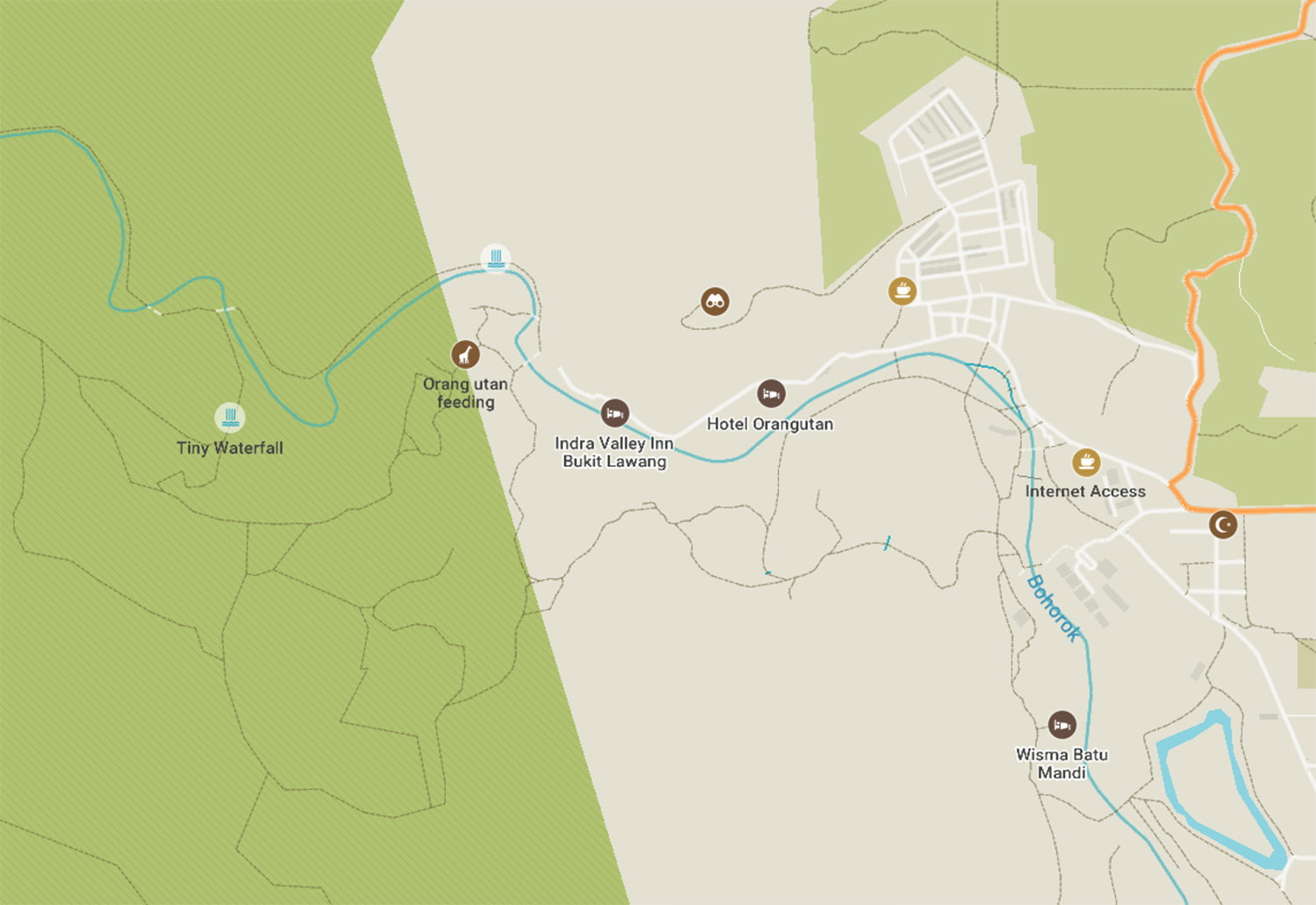
People can also add their own markers to MAPS.ME, which can sometimes give it a bit of a treasure-map feel. One label that I saw in Panama City said ‘GREAT street food try the avocado’. In Bangkok, one pin said ‘washing machines ONLY 30 BAHT!!!’. I love the excitement.
While the mapping purists try to delete or edit these scribbles, to me they are just so charming… kind of like hobo signs telling other wanderers where it’s good.
More ways to research your trip
Of course, there are plenty of other resources that will help you plan your trip. What are your trip research tricks? I’d love to hear your tips in the comments!
Some links may be affiliate links, meaning I may earn commission from products or services I recommend. For more, see site policies.
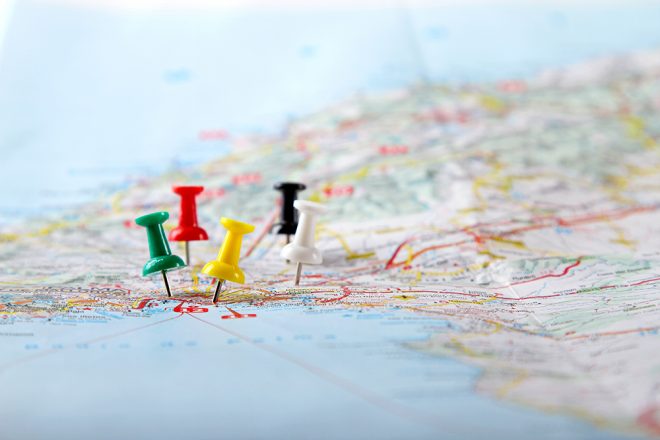
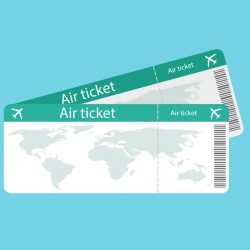

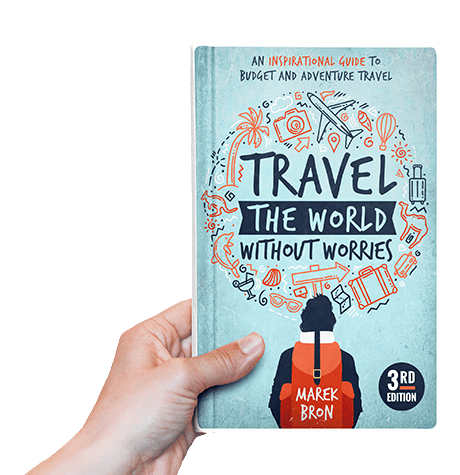



Maps.me is also great if you don’t have access to wifi or a sim. When traveling In Europe we usually have an EU sim. We drove thru Bosnia (not EU) and found maps.me invaluable. JUST REMEMBER TO DOWNLOAD THE COUNTRIES YOU MIGHT NEED MAPS FOR PRIOR TO HEADING OUT OF WIFI RANGE!
And I would add to that… download all the regions! They started splitting up large countries into smaller downloadable packs, which can lead to unpleasant surprises 🙂
Hey Marek! Love these tips! I’d never thought about the “past year” trick in Google tools…clever!
In addition to these, one if my fav methods is good ol’ word of mouth. I love talking to people I meet on the road and learning about their favorite off the beaten path places. I always make sure to get their contact info in case I visit their recommendation and need more tips!
That’s definitely an amazing way to get tips! It’s also the freshest info you could get as those people likely went to the places just recently 🙂
Hi Marek! Enjoyed this article. Really good ideas! Maps.me sounds like fun to look into.